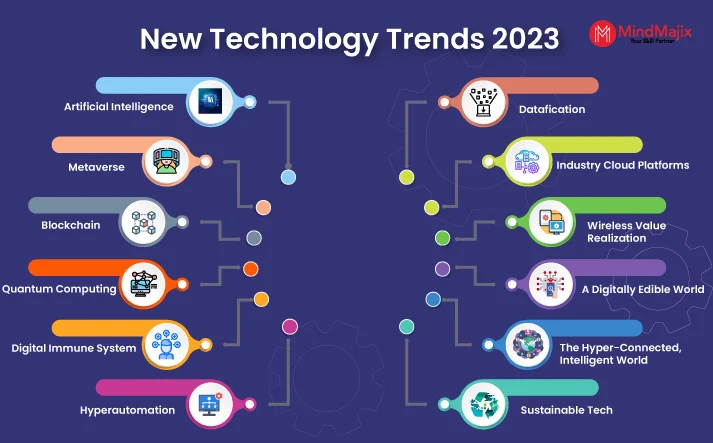As we stand on the brink of a technological revolution, the rise of quantum computing is poised to redefine the landscape of modern technology. This groundbreaking field harnesses the principles of quantum mechanics to process information at unprecedented speeds, offering solutions to complex problems that classical computers struggle to solve. In this article, we will delve into the implications of quantum computing for various sectors, including cryptography, artificial intelligence, and drug discovery, highlighting its potential to reshape our world.
Throughout this exploration, readers will gain insights into how quantum computing differs from traditional computing and why it matters. We will discuss the current state of quantum technology, the key players in the industry, and the challenges that lie ahead. Additionally, we will examine real-world applications that are already emerging, showcasing how businesses and researchers are leveraging quantum advancements to drive innovation and efficiency.
By understanding the rise of quantum computing, you will be better equipped to appreciate its transformative power and the opportunities it presents. Whether you are a tech enthusiast, a business leader, or simply curious about the future, this article will provide you with valuable knowledge and encourage you to stay informed about the developments in this exciting field. Join us as we embark on this journey into the quantum realm and uncover what it truly means for the future of technology.
Quantum computing is poised to revolutionize the technological landscape, offering unprecedented processing power and capabilities. As we delve into this transformative field, it is essential to explore its implications across various sectors.
Understanding Quantum Mechanics and Computing
At the core of quantum computing lies the principles of quantum mechanics, which govern the behavior of particles at the atomic and subatomic levels. Unlike classical computers that use bits as the smallest unit of data, quantum computers utilize qubits. These qubits can exist in multiple states simultaneously, thanks to the phenomenon known as superposition. This allows quantum computers to perform complex calculations at speeds unattainable by traditional systems.
Moreover, quantum entanglement enables qubits that are entangled to be correlated with one another, regardless of the distance separating them. This unique property can lead to enhanced computational power, making quantum computers particularly effective for tasks such as cryptography, optimization problems, and simulations of quantum systems.
Impacts on Cryptography and Data Security
One of the most significant implications of quantum computing is its potential to disrupt current cryptographic methods. Many encryption algorithms, such as RSA and ECC, rely on the difficulty of factoring large numbers or solving discrete logarithm problems. However, quantum computers can leverage algorithms like Shor’s algorithm to solve these problems exponentially faster than classical computers, posing a threat to data security.
As a result, the cybersecurity landscape is evolving to incorporate quantum-resistant algorithms. Researchers are actively developing new cryptographic techniques that can withstand the capabilities of quantum computing, ensuring that sensitive information remains secure in a post-quantum world.
Revolutionizing Industries: Healthcare and Pharmaceuticals
Quantum computing holds the potential to revolutionize various industries, particularly healthcare and pharmaceuticals. By simulating molecular interactions at a quantum level, researchers can accelerate drug discovery processes, leading to the development of new treatments and therapies. This capability can significantly reduce the time and cost associated with bringing new drugs to market.
Additionally, quantum computing can enhance personalized medicine by analyzing vast datasets to identify patterns and correlations that may not be apparent through classical computing methods. This could lead to more effective treatment plans tailored to individual patients, ultimately improving health outcomes.
Quantum Computing in Artificial Intelligence
The intersection of quantum computing and artificial intelligence (AI) presents exciting possibilities. Quantum algorithms can process and analyze large datasets more efficiently, enabling faster training of machine learning models. This can lead to advancements in AI applications, from natural language processing to image recognition.
Furthermore, quantum computing can enhance optimization problems commonly encountered in AI, such as resource allocation and scheduling. By leveraging quantum algorithms, organizations can achieve more efficient solutions, driving innovation and improving decision-making processes.
The Future of Quantum Internet
The concept of a quantum internet is gaining traction, promising a new era of secure communication. By utilizing quantum entanglement, information can be transmitted in a way that is inherently secure, as any attempt to intercept the data would disturb the quantum state, alerting the parties involved.
This quantum internet could revolutionize how we share information, making it virtually impossible for malicious actors to eavesdrop on communications. As research progresses, the development of quantum networks will pave the way for a more secure digital landscape.
Challenges and the Road Ahead
Despite the immense potential of quantum computing, several challenges remain. Building stable qubits and maintaining coherence over time are significant technical hurdles that researchers are actively addressing. Additionally, the high cost of quantum hardware and the need for specialized knowledge in quantum programming present barriers to widespread adoption.
As the field continues to evolve, collaboration between academia, industry, and government will be crucial in overcoming these challenges. With ongoing advancements, the future of quantum computing looks promising, and its impact on technology will be profound.
| Aspect | Description |
|---|---|
| Definition | Quantum computing is a type of computation that utilizes quantum bits (qubits) to perform calculations at speeds unattainable by classical computers. |
| Principles | Quantum computing relies on principles of quantum mechanics, including superposition and entanglement, allowing qubits to exist in multiple states simultaneously. |
| Current State | As of now, quantum computing is in its early stages, with several companies and research institutions developing quantum processors and algorithms. |
| Potential Applications | Quantum computing has the potential to revolutionize fields such as cryptography, drug discovery, optimization problems, and artificial intelligence. |
| Impact on Cryptography | Quantum computers could break traditional encryption methods, necessitating the development of quantum-resistant cryptography. |
| Challenges | Challenges include qubit stability, error rates, and the need for advanced algorithms to fully leverage quantum capabilities. |
| Future Outlook | The future of quantum computing looks promising, with ongoing research aimed at overcoming current limitations and expanding its practical applications. |
| Conclusion | Quantum computing represents a paradigm shift in technology, with the potential to solve complex problems and transform industries, but it also poses significant challenges that must be addressed. |




